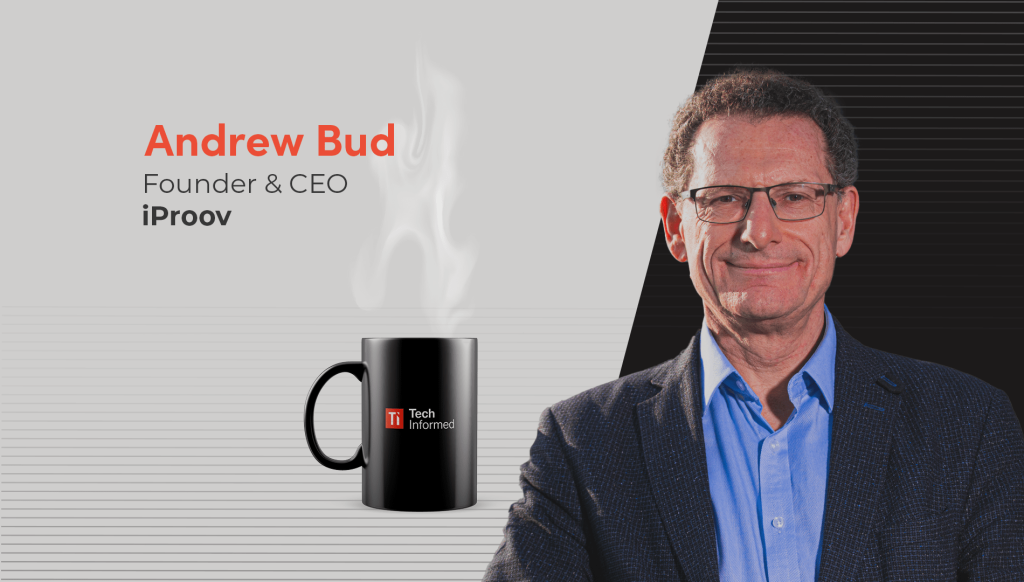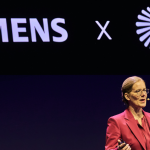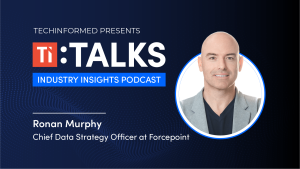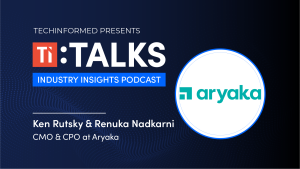

Andrew Bud, Founder and CEO, iProov
After a 2008 hack that allowed criminals to steal money from millions of his customers, Andrew Bud set out to rebuild digital trust. In 2011, he founded iProov, a biometric verification platform originally aimed at…
After a 2008 hack that allowed criminals to steal money from millions of his customers, Andrew Bud set out to rebuild digital trust. In 2011, he founded iProov, a biometric verification platform originally aimed at stopping fraud in mobile content payments. Since then, the technology has evolved in step with rising threats, from phone scams to deepfakes, while also enabling positive change, from powering the UK government’s EU Settlement Scheme to streamlining border crossings.
Over coffee, Bud reflects on iProov’s origins, the challenges of scaling a technology ahead of its time, and the ongoing battle against new forms of digital deception.
You founded iProov in 2011 to tackle online trust. Why?
I’m a serial entrepreneur, though at heart I’m an engineer. Before iProov, I had founded mBlox, which became a large provider of commercial text messaging and mobile payments. In 2008, a vulnerability in our systems allowed fraudsters to fake consumer consents, and millions of our customers lost money as a result. I ended up being pulled up on television and asked whether I was “complicit or just recklessly incompetent.”
When the regulator did their investigation, they said we’d actually behaved in an exemplary manner, but I was still very ashamed and vowed it would never happen again.
The core problem was trust: how do you know the person making a transaction is really the consumer in front of the phone? As an engineer, I couldn’t resist. I realised biometrics could solve this, but also saw how attackers would exploit them. So I invented a way to defend against that. At first, it was just about stopping ringtone fraud – but I quickly realised it could establish trust across the entire online ecosystem. That’s how iProov began.
How has the company evolved, especially with AI and deepfakes emerging?
Although we founded iProov in 2011, we didn’t start generating revenue until 2018. For years, we survived on small amounts of capital and Innovate UK grants. Then came our breakthrough: powering the EU Settlement Scheme, helping five million European citizens secure UK residency in just 18 months. It was expected to fail, but instead it became a success.
COVID accelerated things. Suddenly, processes that used to require in-person checks had to move online. Our revenues tripled in a year. Some projects ended as the pandemic eased – like remote quarantine monitoring in Australia – but we kept growing. Today, we work with governments, banks and border agencies worldwide, providing effortless, inclusive and secure identity verification.
How do you see the future of travel with biometrics?
It’s already here. With Eurostar, we launched a system where passengers could scan their passport, face and ticket in advance. On travel day, they could simply walk past a checkpoint at St Pancras and were cleared without queuing at the gates.
In the US, we’re working with border control in airports like Orlando. Citizens can now walk past our system, be verified, and greeted by an officer – reducing queues and multiplying officer productivity six- to eightfold. Expect to see this replicated globally: faster crossings, fewer queues, less stress.
Can biometric verification replace passwords in a world where they’re proving to be businesses’ biggest vulnerability?
Yes – face verification is a far better credential than passwords. Passwords rely on secrecy, but once a secret is leaked, it’s worthless. My face isn’t secret – it’s on LinkedIn, Instagram, Facebook. What makes it secure is that the real thing is unique and tied to me.
The challenge is that faces can be copied, and deepfakes today are almost indistinguishable to the human eye. Only 0.1% of people can reliably spot them. That’s why spotting copies is critical.
Deepfakes are also being used in scams, such as North Korean IT workers impersonating others. Can solutions like yours help?
Yes. This problem has affected hundreds of US companies, which unknowingly hired North Korean operatives presenting themselves with deepfaked identities. During interviews and onboarding, they used synthetic faces. Our technology can detect deepfakes, preventing this kind of fraud.
How do you address public concerns about trust and privacy with biometric data?
People often say they don’t want to “give away” their face – but they already share it freely online. What they’re really worried about is linking their identity to services they’d prefer to keep private.
At iProov, privacy is built into our system. We never know who you are. Our partners – banks, governments, service providers – assign you a random serial number when they send us an image. We check liveness and authenticity but never receive personal data like your name or address. We keep the biometric verification completely separate from personal identity, which protects users.
You’ve been an entrepreneur for more than three decades. How has that shaped how you work today?
The key is having a mission that goes beyond making money. For me, solving the challenge of digital trust provides that sense of purpose. It’s also a problem that never gets “solved” – attackers keep innovating, so we must too. That makes it permanently interesting.
One lesson: focus on solving the problem, not on how clever your technology is. Another: timing matters. I invented biometric liveness detection in 2011; it became mainstream in 2020. I built Europe’s first wireless LAN in 1993; Wi-Fi took off a decade later. Sometimes you’re early, and the trick is surviving long enough to be right.
How do you take your coffee?
I lived in Italy for nearly 10 years, and my wife is Italian, so I only drink espresso and cappuccino. At home, we buy beans from a small roaster in the mountains north of Genoa called Covim. It’s a medium-dark roast, full of flavour but without the bitterness of Neapolitan coffee.
We’re particular about how we drink it, too. We have a bean-to-cup machine that grinds the beans fresh and produces a pressurised espresso. My wife is a professional ceramicist and makes our espresso and cappuccino cups. So every morning we drink coffee from Genoa, ground fresh, in cups she has crafted. It’s perfect.
What is your end goal with iProov?
I want iProov to be remembered the way Italian people still remember Olivetti – not just as a company, but as a place people are proud to have worked at.
We’re also proud to be a UK success story. In 2019 I was awarded a CBE for services to high-tech exports. Despite our global footprint, we remain a very British company: headquartered in London, with most of our R&D, science and marketing here. We’re exporting world-leading AI technology worldwide. That’s something we – and the UK – should celebrate more often.







